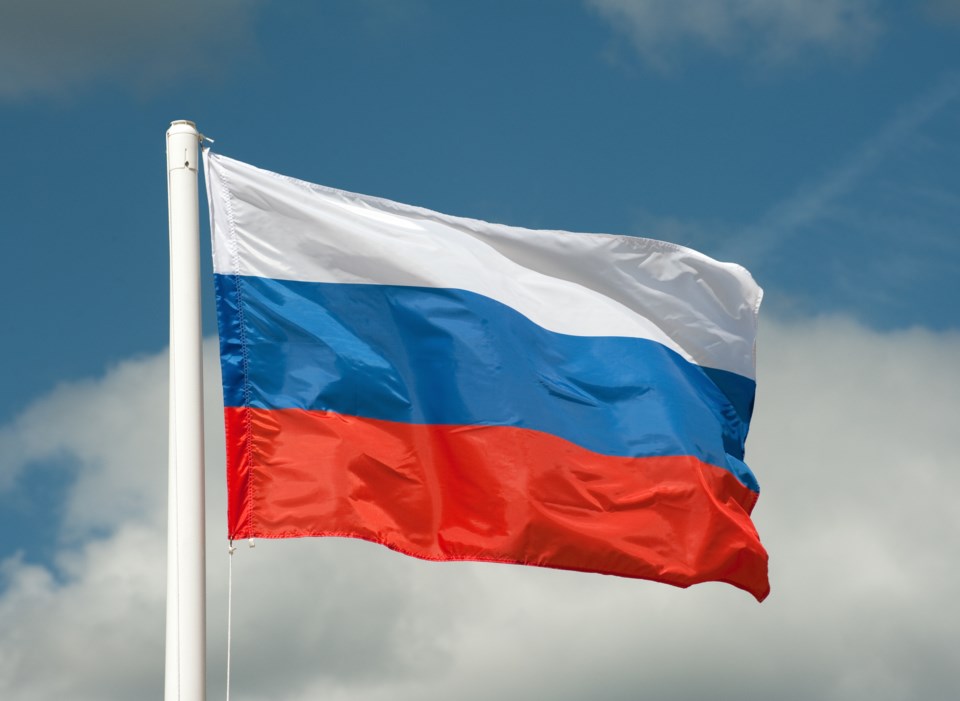Twice a year, Research Co. and Glacier Media ask Canadians about their impressions of 15 different countries.
Since we started tracking this question in 2019, it has become customary to see North Korea – a nation that has practically no bilateral relations with Canada – at the bottom of the list. The absence of true democratic institutions, as well as growing concerns about nuclear proliferation and human rights, have given rise to negative views.
In our latest survey, only 13 per cent of Canadians have a positive opinion of North Korea, down one point since our previous poll completed in December 2021. Still, and for the first time in six different surveys, this country is not the least-liked by Canadians.
This dubious distinction, in May 2022, belongs to the Russian Federation. Only 12 per cent of Canadians (down 12 points) hold favourable views of Russia. This country also elicits the highest proportion of “very negative” ratings (63 per cent, ahead of North Korea at 56 per cent).
There is no discernible demographic group in Canada where at least one in five respondents have a positive opinion of the Russian Federation. The numbers are particularly low among residents of Saskatchewan and Manitoba (five per cent), Canadians aged 55 and over (six per cent) and supporters of the federal New Democratic Party (NDP) (nine per cent).
Our previous poll was completed before the start of the year, and when the prospect of an invasion of Ukraine was not in our collective minds. In late February, we reported that only one per cent of Canadians wanted to see our federal government supporting Russia in what was then a dispute that had not developed into an armed conflict.
Another country that, along with North Korea and Russia, has not been particularly liked by Canadians is China. The past six months brought, finally, an official decision to ban Huawei Technologies Co. Ltd. from Canada’s 5G-network infrastructure.
China’s standing in the minds of Canadians did not change. We continue to see only 20 per cent of Canadians expressing a positive opinion of the country; those numbers drop to 14 per cent in both Alberta and Atlantic Canada and to 10 per cent among those aged 55 and over.
There are four other countries that cannot clear the 50 per cent threshold of favourable views in Canada. India (37 per cent, unchanged) and Venezuela (31 per cent, up three points) score higher than Saudi Arabia (24 per cent, up one point) and Iran (16 per cent, unchanged). The numbers have been relatively stable for these countries since December.
Closer to home, we see an improvement in the way Canadians feel about our North American free trade partners. Half of Canadians (50 per cent, up five points) hold positive opinions of Mexico, and a larger proportion (56 per cent, up six points) feel the same way about the United States.
The turnaround for our American neighbours is remarkable, considering that almost two years ago – in July 2020 – only 32 per cent of Canadians held a favourable view of the United States. Plenty of that animosity had to do with Donald Trump occupying the White House, and with what was perceived as a dismal performance in the early stages of the COVID-19 pandemic.
Over the past two years, the change in the way Canadians feel about the United States is significant. The country experienced double-digit increases in favourability in every region of Canada, including Ontario (59 per cent, up 21 points) Quebec (54 per cent, up 19 points), Alberta (57 per cent, up 18 points) and British Columbia (48 per cent, up 22 points).
Our views have also become more positive about South Korea (59 per cent, up four points) and remain high for Canada’s remaining partners in the G7. More than two-thirds of Canadians have a favourable opinion of France (69 per cent, up one point), Japan (also 69 per cent, unchanged), Germany (70 per cent, up one point), Italy (73 per cent, up four points) and the United Kingdom (also 73 per cent, up two points).
It is important to note that our positive views of the United Kingdom have not been directly affected by our relationship with the monarchy. In February, practically half of Canadians (49 per cent) expressed a desire to have an elected head of state instead of a king or queen – the highest proportion in 13 years. This skepticism does not represent a desire to fully abandon our heritage, but a wish to examine the future of the institution, particularly due to our misgivings about the first in line to the throne.
The biggest fluctuations of this survey, when compared to what we learned late last year, show how our perceptions are shaped in the era of immediate information. The Russian Federation is now the least-liked country for Canadians because of what it has done. The United States has climbed the charts because of what it no longer represents.
Mario Canseco is president of Research Co.
Results are based on an online study conducted from May 22 to May 24, 2022, among 1,000 adults in Canada. The data has been statistically weighted according to Canadian census figures for age, gender and region. The margin of error, which measures sample variability, is plus or minus 3.1 percentage points, 19 times out of 20.



